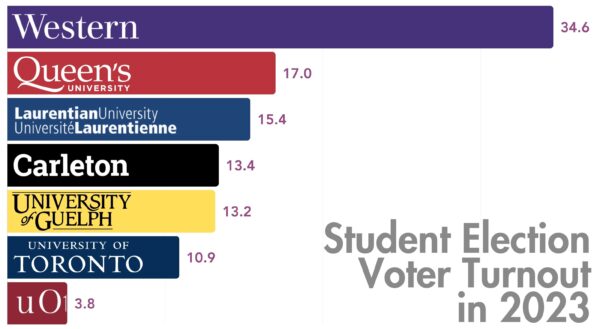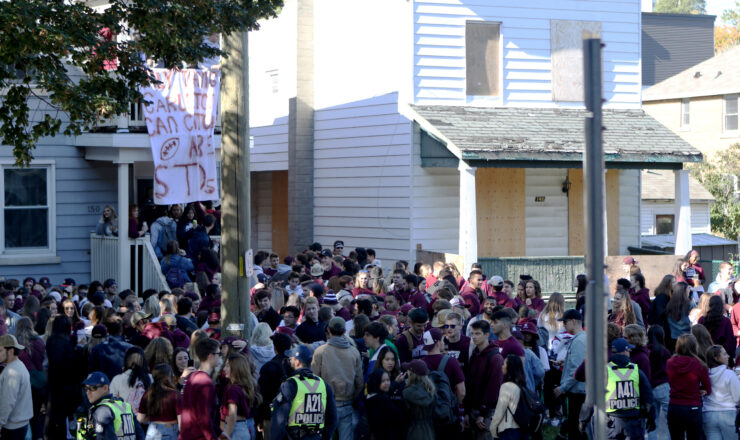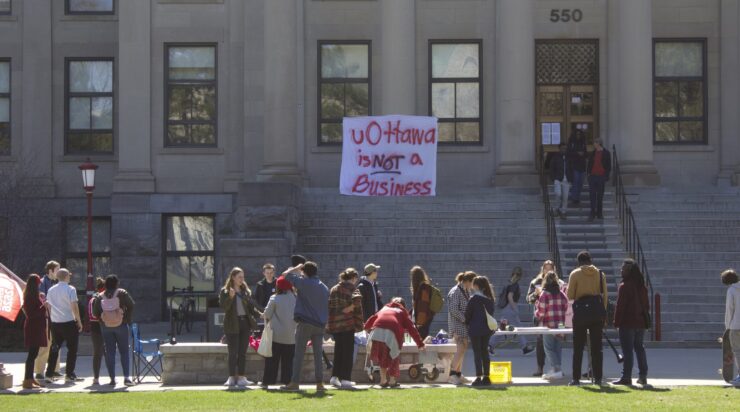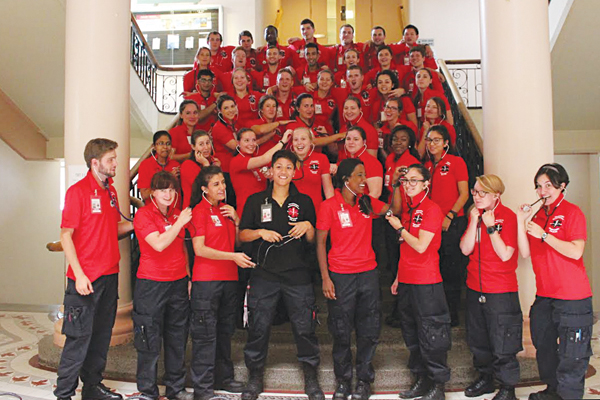HIT THE CAMPAIGN ROAD, JACK!
What is a union without any actual bargaining power? Well, it seems that with each passing election, the University of Ottawa Student Union (UOSU) gets closer to finding the answer to that question.
UOSU’s first-ever election in 2019 saw a 16 per cent voter turnout. That number has since plummeted to 3.8 per cent in 2023. I don’t need to be the one to tell you that 3.8 is a pathetically small percentage. It’s even worse when comparing our elections to other universities. Just like us, they have issues with voter turnout, but most see percentages over 10 per cent.

Many students may not be aware that U of O has a rich history regarding student government. In 1965, the Student Federation of the University of Ottawa (SFUO) elected a president; Jock Turcot. His big vision for the university? A large centre that would be under the jurisdiction of the federation to do with what the student body pleased.
He made national news and played a huge role in the nationwide movement for student rights. He rejected the chance to lead the Canadian Union of Students because he wanted to focus on helping his own university. He really wanted that centre that he promised to deliver.
And on Christmas day of 1965 Jock Turcot got into a car accident and passed away. Almost a decade later, the Jock Turcot Centre opened to the public.
Over five decades later that rich history was overshadowed by pure and unadulterated greed. In 2018, SFUO President Rizki Rachiq was found to have defrauded the students of U of O over $20,000.
This is what most people point fingers at to explain why our voter turnout is so much lower than other Ontario universities. A distrust in student government.
But the 2018 scandal happened nearly six years ago. The student body voted SFUO out and UOSU in back in 2019, which was my first year. I now find myself in my sixth year and I’m one of the only students left who ever paid levy’s to the SFUO.
The truth is the SFUO was having the same issue with voter turnout that we are having today. The aforementioned, former SFUO President Rachiq was elected with a 7.8 per cent voter turnout.
Previous contested UOSU candidates have not campaigned hard enough. Candidates need to make themselves worth voting for. It is the job of the candidates to get their supporters to turn out to vote. Some may say it’s a waste of time to attempt to motivate non-voters, but that’s just defeatist.
Back in Feb., I stumbled across various campaign videos on TikTok for Western’s University Student Council (USC). For a month these videos were all that would appear on my for you page. Each video had over a thousand likes; pretty good for a student government election.
They even have campaign scandals where candidates steal campaigning ideas from other candidates.
I was curious so I looked into it: USC has had a voter turnout upwards of 38 per cent for almost two decades. Those campaigns are hard and the candidates work their asses off to make sure as many student’s know about the election as possible.
They don’t just go after students who are already established voters; they aim to turn non-voters into voters. They treat it the same way someone running for municipal office would treat a campaign. They even have a higher voter turnout than London’s municipal election which was just over 25 per cent.
That’s what we need at U of O: we need candidates who are willing to do the work on getting the vote out. We need candidates to do the legwork to make compelling platforms and campaigns to get students voting. Call me an optimist because I have faith that this by-election could be the start of a new age for UOSU.
Now I want to speak directly to UOSU candidates, especially the presidential candidates. I have a challenge for you: campaign as hard as you can. Use social media, be clever with your campaign strategy, and aim to get as many new voters as you can and do that by introducing new and brilliant ideas.
Remember; we have a rich history when it comes to student rights. The 2018 SFUO scandal may have tarnished our reputation but maybe today’s candidates can change that reputation for the better.







